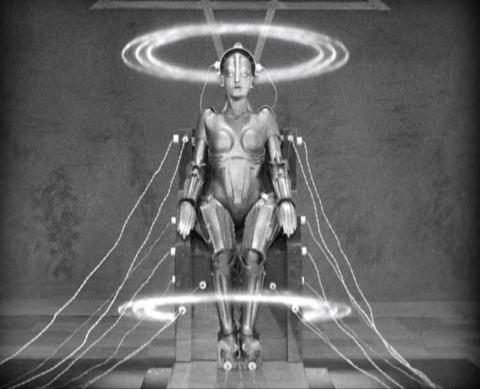Living for the city

The most complete version yet of Fritz Lang's sci-fi classic is not to be missed. By Clare Lanigan.
For decades the only version available of Fritz Lang's 1927 silent masterpiece 'Metropolis' was a cadavre exquis made up of what footage survived after American distributors cut nearly an hour from the original edit and the lost scenes were left to rot in various warehouses. Bits of film have been rediscovered over the years, leading to various 'definitive' versions, including the 1986 cut accompanied by Giorgio Moroder's infamous synth-heavy soundtrack, but it's only this year that the fullest, most logical version of the film can be seen. This was faciliated by the discovery in 2008 of over 30 minutes of original footage in an archive in Buenos Aires, and it is the existing footage plus these additions that is on view in the IFI until Thursday 23 September.
'Metropolis', set in a dystopian future where countless workers toil underground to facilitate the luxurious lifestyles of the inhabitants of the eponymous city, is a truly unique film, combining high art with blockbuster melodrama with complete unselfconsciousness. It's technical and imaginative achievements remain unparalleled - the prototype for all TV robots, the 'mad scientist' and his lab and the dystopian city of the future are found in this extraordinary feat of technical and creative imagination. The plot apparently makes far more sense in this complete version than in previous edits, and centres around the discovery of the subterranean hell of the workers by Freder, the somewhat hysterical son of Metropolis' founder, Joh Frederson, and his attempts with the saintly Maria to help the workers using non-violent means. Rotwang, the mad scientist employed by Joh Frederson, creates a robot version of Maria to incite the workers to open rebellion and thus justify Joh Frederson's intentions to crack down violently on them.
Modern-day parallels are hard to ignore, when the third world labours on subsistence pay to accommodate the lifestyle of the West, but the film had more immediate, and questionable, appeal at its time - its message of a 'Mediator' being needed to reach concord between the workers and the bureaucrats struck a chord with Goebbels and Hitler. This appeal can perhaps be attributed to the movie's scriptwriter, Thea von Harbou, Lang's wife at the time and later an enthusiastic member of the Nazi party (she and Lang had divorced by that time). The 'good' Maria's peasant-girl costume and rather wimpy appeals to the workers to wait for the mythical 'Mediator' are easily identified with the contemporary growth in nationalistic sentimentality that the Nazis piggybacked so effectively on, while the 'evil' Maria's exhortations to violently rebel are clearly meant to echo (and criticise) Bolshevism (her gestures while speech-making are even reminiscent of Lenin).
But 'Metropolis' is by no means a Nazi movie, and should not be judged by the political sympathies of its writer and fans. Frankly, the script comes a poor second to the magnificent cinematography and montages that Lang showcases, from the iconic opening sequence of the cogs and pistons of the 'Heart-Machine' to the jaw-dropping sequence where the 'evil' Maria performs an atavistic cannibalistic dance, spinning off into wild apocalyptic fantasy with the Grim Reaper and the personified Seven Deadly Sins turning up for good measure. Sequences such as these will more than make up for the tediously melodramatic acting beloved of silent cinema at the time. The addition of the original score by Gottfried von Huppertz also carries things along at a fine pace.
Not to be missed.
'Metropolis' runs until Thursday 23 September in the Irish Film Institute.
